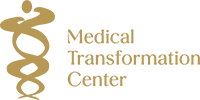At the Medical Transformation Center in Louisville, Kentucky, we know that thyroid disorders are common, and we offer thyroid testing to help combat the concern. Statistically, about 12% of people will experience some form of thyroid disorder in their life, and getting it treated is the key to feeling like yourself again. Knowing the early signs of thyroid problems could be a great help to treat it.
What Does Thyroid Testing Do?
The thyroid produces hormones that are responsible for coordinating energy, growth, and metabolism throughout the body. When the thyroid levels become too high or too low, problems can occur.
Hypothyroidism
Hypothyroidism occurs when the thyroid isn’t producing enough hormones. This can result in weight gain and a lack of energy.
Hyperthyroidism
Hyperthyroidism occurs when too many hormones are being produced, which can result in a loss of weight and, at times, a detrimental increase in energy.
To avoid these issues, it is important to keep a close watch over bodily changes that might affect your thyroid and its hormone production. If signs or symptoms of thyroid issues occur, thyroid testing can help diagnose the issue and begin a regimen of regulating the disorder.
15 Signs of Thyroid Problems
Because our biological functions are so often tied to our hormones, there are a number of symptoms that could indicate an issue with your thyroid.
1. High Heart Rate
An excessive heart rate can be a symptom of hyperthyroidism. When the thyroid is working too hard and producing too many hormones, blood pressure can increase, leading to an elevated heart rate.
Without heart palpitations, it can be hard to measure your own resting heart rate. Fortunately, many smartphones are equipped with Health apps that can assist you. Anywhere between 60 and 100 beats per minute at rest is considered normal, however, if you find that your heart rate is frequently over 80 beats per minute, it is worth mentioning to your physician.
2. Excessive Tiredness
Similarly, when your heart and blood pressure are not functioning fast enough, you might experience excessive feelings of exhaustion. This is often associated with hypothyroidism and is commonly the first sign of trouble.
Excessive sleep or difficulties waking up and staying awake in the morning should be taken seriously. Talk to us about these concerns, especially if they are presenting with other symptoms.
3. Anxiety
Many who experience hyperthyroidism struggle with feelings of anxiety. This often leads to them feeling angry without warning or have trouble controlling emotional outbursts. If you find that you are struggling to get along with the people around you, you should evaluate what has changed.
If there is no other explanation for the change in your demeanor, you might be experiencing a symptom of a hormonal change as a result of thyroid disorder.
4. Weight Gain or Loss
One of the early signs of thyroid problems is weight gain or loss. Rapid weight gain is an indicator of low thyroid function. When you do not have the energy to function normally, you are unable to burn the calories needed to maintain a healthy weight.
Alternatively, when you are struggling with too much energy, you will find that your metabolism will work too rapidly. This will result in a rapid loss of weight which may, at first, feel like a welcome change. If you are losing weight without explanation, however, it is important that you seek medical assistance to ensure that the otherwise pleasant change is not an underlying sign of trouble.
5. Body Shakes
High blood pressure can result in trembling as a result of nervousness, however, shaky hands or difficulty relaxing can be just as prevalent.
Usually, shaky hands or body twitches will be excused as a sign of exhaustion or nerves. If you find that this is happening often, though, you might be wise to schedule thyroid testing.
6. Feeling Chilly or Overheated
Blood pressure is directly linked to circulation. Low circulation will result in feelings of being chilled. You might find that you are reaching for a sweater when others are feeling just fine. If you are always cold or notice that your hands and feet become particularly chilled when uncovered, you may be experiencing a symptom of hypothyroidism.
Hyperthyroidism might present in the opposite way. This could cause you to feel hot flashes or experience excessive sweating.
7. Trouble Concentrating
Do you often find that you lose concentration when trying to complete a task? If you have trouble staying the course or find that you are especially forgetful, you might be experiencing a symptom of thyroid trouble. Prolonged confusion can also be an issue.
Losing track of where you parked the car, what you entered the kitchen for, or losing the ability to track names and dates are the most common signs of thyroid-related forgetfulness and confusion. Both hypo and hyperthyroidism present in difficulty concentrating, so it is doubly important to rule out thyroid issues if you are experiencing this type of situation.
8. Hair Loss
Some hair loss is normal. As your hair grows, you will lose strands and should not be alarmed at a normal amount of hair loss. If you find that your hair is becoming thinner than it used to be, or that you are finding bald spots, there is reason to be concerned.
Pay close attention to how much hair is attaching itself to your brush regularly. It is common to lose some strands while grooming, but if you are brushing out more than you used to, it might be hyperthyroid related. Contact us for a test if so.
9. Digestive Issues
This is another way that thyroid issues might present at opposite ends of the spectrum. Those who struggle with hypothyroidism commonly complain about constipation issues, while those who experience loose stools more frequently are struggling with a hyperactive thyroid.
If your digestive habits have changed recently, they may be tied to hormonal changes in the body: but other causes should also be ruled out.
10. Muscle Aches and Trouble Swallowing
Muscle aches throughout the body are sometimes associated with abnormal thyroid levels. If your muscle aches have recently onset without any other obvious causes, a thyroid disorder is one likely cause. Rarely, muscle breakdown can also occur. If you find that you are unable to build toned muscle, reach out to your physician.
On a similar vein, because the thyroid is located in the neck, the neck muscles are usually the first to experience these symptoms. This includes the muscles associated with swallowing. If you are struggling to swallow, this could be another signs of thyroid problems.
11. Changes in Menstrual Cycle or Sexual Performance
Hormonal changes are closely linked to sexual function. If you find that your period is becoming irregular, heavier, or more painful than before, or if you are experiencing stronger emotional symptoms tied to PMS, your thyroid might be the cause.
You might also experience difficulty with sexual performance or enjoyment. If you are having difficulty with libido or achieving orgasm or if you cannot maintain an erection, you could also be struggling with a thyroid-related symptom.
While these are uncomfortable issues to talk about, they should absolutely be addressed with us to rule out not only thyroid trouble but also anything else that might quietly be causing these issues.
12. Dry or Oily Skin
Dry skin is most commonly associated with hypothyroidism. When the thyroid isn’t acting as quickly as it should, hormone levels decrease and this can have the secondary effect of skin drying out.
Oily skin is caused by the reverse. When the thyroid is too active, your body will overproduce hormones and therefore the chemicals that add moisture to your skin pores and hair follicles. Both of these symptoms can result in skin breakouts or acne.
13. Sleep Issues
Because our thyroid so often regulates our energy levels, we might find that we are having trouble maintaining normal sleep schedules. If you are not able to stay asleep or are waking up many times throughout the night, you could be experiencing hyperthyroidism.
These issues might also occur as a result of hypothyroidism because they could be linked to an inability to stay awake or excessive napping during what should be your waking hours. In either case, thyroid testing is a way to ensure all is functioning properly.
14. Changes in the Eyes
Thyroid issues can affect your eyes in numerous ways. This includes dry eyes, watery eyes, red eyes, a “stare,” double vision, difficulty closing your eyelids, bulging eyes, or a change in vision. This is most commonly because the thyroid change is associated with an imbalance in the immune system, which is closely tied to the ocular system.
Bulging eyes are most commonly associated with hyperthyroidism. You will likely not notice your eyes bulging because the process will be gradual. It is most likely that others will notice this symptom first, instead.
15. Growth on the Neck
Formerly called goiters, growths on the neck are symptoms of extreme thyroid disorder. Thyroid nodules, as they are most frequently called, are the result of a swollen thyroid gland. They also could be the result of a growth that has attached itself to the thyroid. If you notice a bulge in your neck, you should contact us right away to have the situation assessed.
These are, of course, not the only symptoms. They are simply the most common signs of thyroid problems. If your physician recommends thyroid testing without any of these symptoms occurring, don’t be alarmed. Many use it as a standard checkpoint in their provided healthcare routine.
How Are Thyroid Issues Treated?
Once you figure out the early signs of thyroid problems and you suspect that you are experiencing some thyroid issues, you are likely wondering how these concerns might be resolved. The two most common ways are medication and surgery.
Medication
There are a number of prescription medications available on the market that are commonly used to treat hyperthyroidism and hypothyroidism. Most are taken daily in the form of a pill or capsule, however, there are others that are injected at intervals.
If medication is the correct route for you, we will discuss these options at the appropriate time. This conversation will help you narrow down which regimen is correct for your situation and help you decide the best path forward.
Surgery
In some cases, the thyroid is removed in a medical procedure. This is most common with hyperthyroidism which is sometimes resistant to medication or in situations where the thyroid has already created severe medical difficulty. Following surgery, medication is also often prescribed.
To help support your thyroid health, we recommend taking RegenaThyroidSupport. This supplement is made of nutrients and botanicals that work together to support the health of your thyroid and works great in conjunction with the rest of your health plan.






